Book Review: Fade to Black, by Francis Knight
/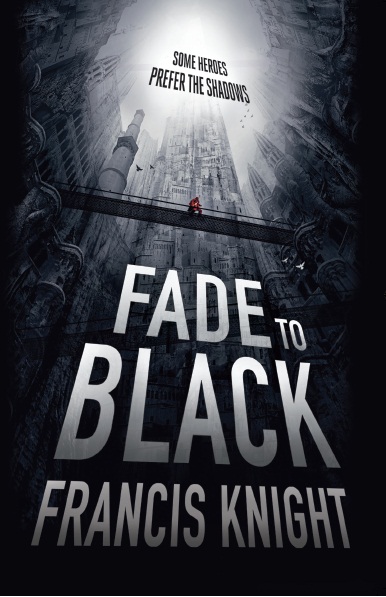
Francis Knight does what so many fantasy authors fail to achieve: create a fantastic world in which to play.
In Fade To Black, pain-mage Rojan Dizon works in the shadows of Mahala, finding people who need to be found, trying to stay a step in front of the law. When his niece is kidnapped and taken to The Pit, Rojan must follow, where he finds that he’s going to be put up against every boundary he has.
The city of Mahala is built up, not out. Bound by mountains on either side, the Mahala is a tall metropolis that shoots into the sky, with a complex, dystopian society run by a ruling elite. Rojan makes his living in this environment, using his forbidden powers sparingly, to avoid detection from the ruling elite. Journeying to the roots of the city, Rojan is in pursuit of his niece, and comes across a world that he never expected, sealed off from the upper levels of the city. There, he encounters Pasha and Jake, a pair of outcasts who have their own agendas that coincide with Rojan’s.
Fade To Black is an engaging, but flawed read. Knight takes a closed, claustrophobic world and spins an interesting story within the walls of Mahala, populated with some solid characters and underlying themes that come together more or less as expected. The book is hard to put down throughout the first half, and while the middle slows considerably, everything flows along pretty well throughout.
The novel works well as a sort of pulp-thriller. A noir-ish detective is pulled into a mystery that grows as the character digs (or in this case, descends) deeper into their surroundings. Knight has set up Mahala as a neat metaphor for overwhelming corruption, and we see firsthand the effects of this when Rojan does go below. Starting with the disappearance of his niece, he uncovers a horrifying truth to the true nature of the city and just what the city’s rulers have allowed under their watch. Overall, while the plot is solid, Rojan and the rest of the characters feel like they’ve being snapped into a rigid framework that leads them through points A, B and C, inorganically. The result is a quite a bit of treading water through some ‘character moments’ that feel like they’re just biding time in at points. A romance between characters is forced at points, and ultimately, what slows the book down is the distraction from Rojan’s main goal: rescue his niece.
Unfortunately, Rojan feels far more out of water than he should: an archtype anti-hero right out of a ’30s detective story, it feels as though he’s further along in his character development than he should be. When he’s in his element in the upper levels of the city, he’s just fine, but as he drops lower into the underside of the city, it’s clear that he’s far more clueless than previously thought. He’s ignorant of the underworld’s entire existence, he flounders around with two companions for much of the middle of the book before going through a sort of internal dialogue about his willingness to use his powers. It’s frustrating, in many ways, because it feels very backward.
This isn’t to say that this is a bad book: far from it. At its heart, Fade To Black is a pulpy, noir-ish adventure, one that is engaging and quite a bit of fun to read. While flawed at points, Knight’s debut work is an unconventional fantasy, one that is a nice departure from the pseudo- Medieval European setting and modern day urban fantasy stories that seem to populate the bookshelves now. With two more books (Before The Fall and Last To Rise)set to be released later this year, readers won’t have long to wait before we’re treated to new adventures in Mahala.

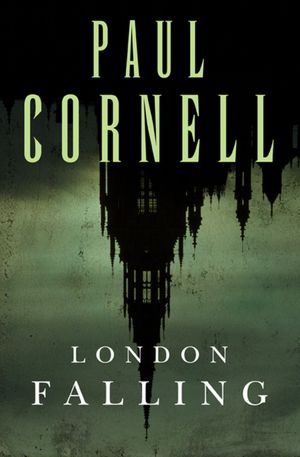
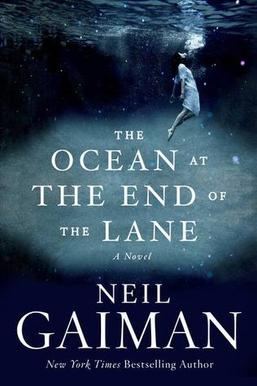 Originally published to Geek Exchange.
Originally published to Geek Exchange.

 I picked up this book the other day: reading up on the ongoing West African Ebola Outbreak has become a focus of research and interest of mine lately. My interests in Ebola go back to the granddaddy of all Ebola books: The Hot Zone, by Richard Preston, published back in the mid-90s, and read while I was in Middle or High School. It's been one of those things that's sort of been at the back of my mind in the intervening years, with an assumption that at some point (not an IF), it'll break out into a wider population and cause some real harm. That's what's happened for almost a year now over in West Africa.
I picked up this book the other day: reading up on the ongoing West African Ebola Outbreak has become a focus of research and interest of mine lately. My interests in Ebola go back to the granddaddy of all Ebola books: The Hot Zone, by Richard Preston, published back in the mid-90s, and read while I was in Middle or High School. It's been one of those things that's sort of been at the back of my mind in the intervening years, with an assumption that at some point (not an IF), it'll break out into a wider population and cause some real harm. That's what's happened for almost a year now over in West Africa. Andy Weir's first novel, The Martian: A Novel, has garnered a lot of buzz lately: it's an addicting, rapid-fire book that runs along with a manic energy that makes it difficult to put down. You know how you slow down while passing an accident on the high way? I had that reaction as I blew through it, waiting to see just how Astronaut Mark Watney would survive.
Andy Weir's first novel, The Martian: A Novel, has garnered a lot of buzz lately: it's an addicting, rapid-fire book that runs along with a manic energy that makes it difficult to put down. You know how you slow down while passing an accident on the high way? I had that reaction as I blew through it, waiting to see just how Astronaut Mark Watney would survive.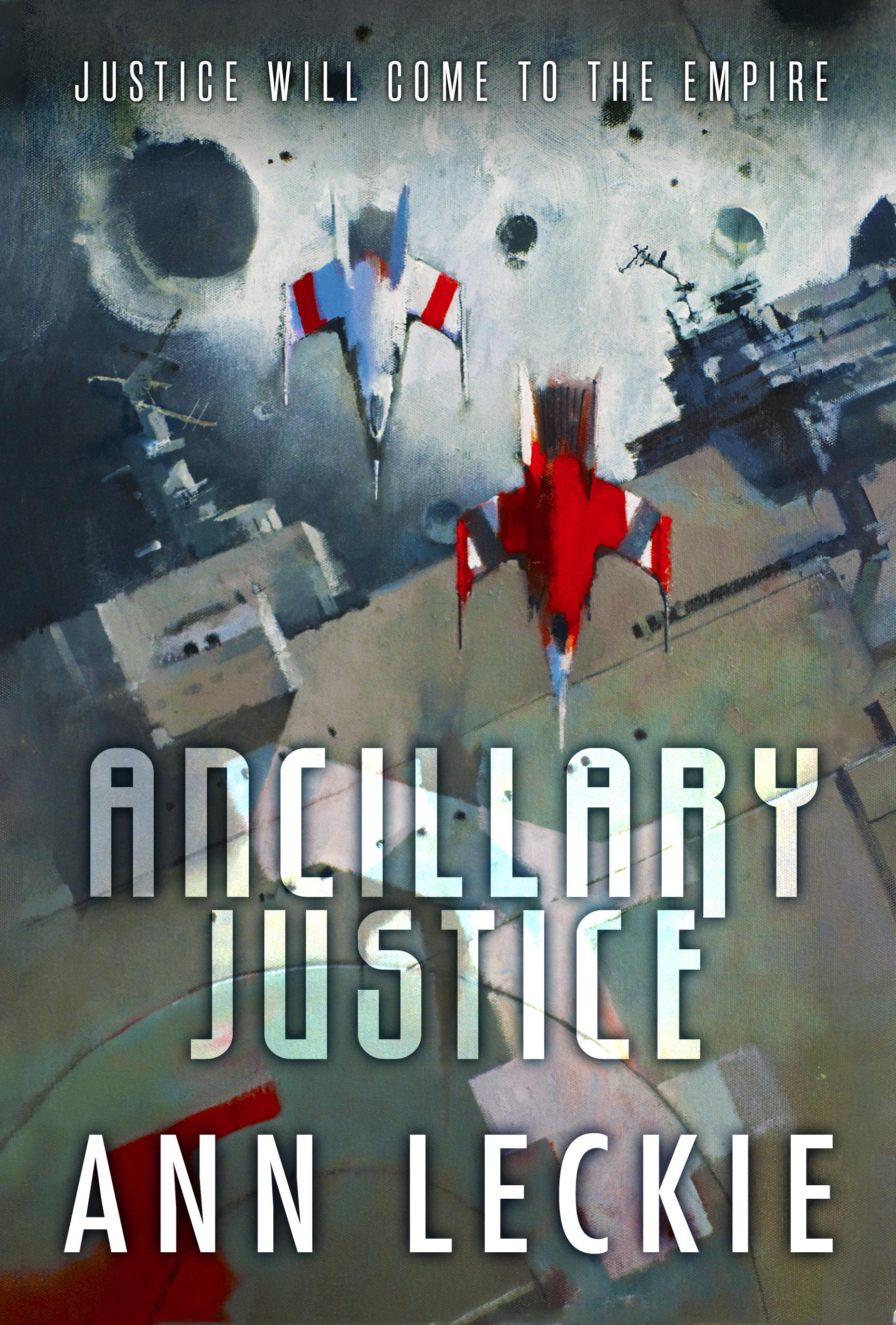 The Justice of Toren faithfully served the Radch, a galaxy-spanning empire overseen by Anaander Mianaai, the multibodied, immortal The Lord of the Radch. The empire has stood for millennia, maintained by a militaristic system of ships, human soldiers and undead ancillary soldiers under the control of their ship. The ships, such as the Justice of Toren, are run by advanced AI systems who oversee all parts of their command and mission. With the opening of Ann Leckie's debut novel Ancillary Justice, we're introduced to Breq, the last individual of the Justice of Toren, whose twenty year mission is almost at an end.
The Justice of Toren faithfully served the Radch, a galaxy-spanning empire overseen by Anaander Mianaai, the multibodied, immortal The Lord of the Radch. The empire has stood for millennia, maintained by a militaristic system of ships, human soldiers and undead ancillary soldiers under the control of their ship. The ships, such as the Justice of Toren, are run by advanced AI systems who oversee all parts of their command and mission. With the opening of Ann Leckie's debut novel Ancillary Justice, we're introduced to Breq, the last individual of the Justice of Toren, whose twenty year mission is almost at an end.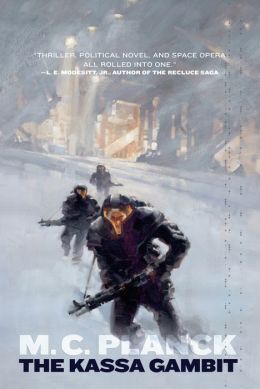 As the new year rolls around, I've been keeping my eyes out for the new crop of books that are set to be released. Already, there's a handful that have caught my eye, including M.C. Planck's debut novel The Kassa Gambit. Set in deep space, with inter-colony intrigue, a smuggling ship and a neat cover, it has all the hallmarks of a book that looks to be a fun read, and for the first two-thirds, it really is. The final third, however, demonstrates just how quickly a book can go from a fun and entertaining affair to one that fills me with the desire to throw the book across the room. It's a shame, because this book looks as through it might have been good, rather than blatantly offensive.
As the new year rolls around, I've been keeping my eyes out for the new crop of books that are set to be released. Already, there's a handful that have caught my eye, including M.C. Planck's debut novel The Kassa Gambit. Set in deep space, with inter-colony intrigue, a smuggling ship and a neat cover, it has all the hallmarks of a book that looks to be a fun read, and for the first two-thirds, it really is. The final third, however, demonstrates just how quickly a book can go from a fun and entertaining affair to one that fills me with the desire to throw the book across the room. It's a shame, because this book looks as through it might have been good, rather than blatantly offensive. A journalist recounts an encounter with an alien entity that appears throughout human history,
A journalist recounts an encounter with an alien entity that appears throughout human history,  Nicholas de Monchaux's Spacesuit: Fashioning Apollo is a stunning history of the development of NASA's A7L EVA Space Suit. Used on the Apollo and Skylab missions during the heights of the Space Race, the space suit is quite possibly one of the more recognizable images of mankind’s existence in space. In this extraordinary book, he outlines what we know in abstract form: that the lunar landings were an event that was the cumulative efforts of thousands, if not millions of people across a huge number of industries. The real triumph of Apollo isn't the steps that made history on the moon: it's all of the steps in the decades before that got them there. Laid out in 21 chapters (the same number of layers that went into a space suit), and covered in a latex dust jacket, de Monchaux methodically drills into the development of a garment that would protect an astronaut in the extreme, inhospitable environment of space. In doing so, he covers far more than just the evolution of the spacesuit: he provides an in depth history of how we went to space and the impact that it had, touching on social, military and political influences.
Nicholas de Monchaux's Spacesuit: Fashioning Apollo is a stunning history of the development of NASA's A7L EVA Space Suit. Used on the Apollo and Skylab missions during the heights of the Space Race, the space suit is quite possibly one of the more recognizable images of mankind’s existence in space. In this extraordinary book, he outlines what we know in abstract form: that the lunar landings were an event that was the cumulative efforts of thousands, if not millions of people across a huge number of industries. The real triumph of Apollo isn't the steps that made history on the moon: it's all of the steps in the decades before that got them there. Laid out in 21 chapters (the same number of layers that went into a space suit), and covered in a latex dust jacket, de Monchaux methodically drills into the development of a garment that would protect an astronaut in the extreme, inhospitable environment of space. In doing so, he covers far more than just the evolution of the spacesuit: he provides an in depth history of how we went to space and the impact that it had, touching on social, military and political influences.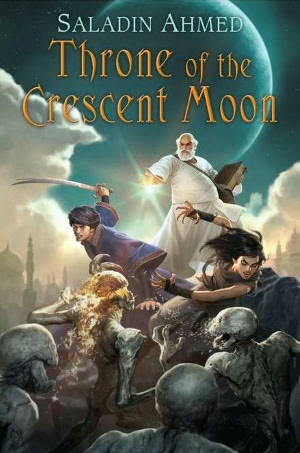 Saladin Ahmed's debut novel, Throne of the Crescent Moon has been getting a lot of attention since its release earlier this year. It's a fantastic novel, right out of the gate, gripping and engaging, but it's also been getting quite a bit of attention for its location. Epic fantasy set in a recognizable Middle East - inspired world; it's a far cry from the pseudo-Middle-Ages-European settings that most worlds seem to inhabit.
Saladin Ahmed's debut novel, Throne of the Crescent Moon has been getting a lot of attention since its release earlier this year. It's a fantastic novel, right out of the gate, gripping and engaging, but it's also been getting quite a bit of attention for its location. Epic fantasy set in a recognizable Middle East - inspired world; it's a far cry from the pseudo-Middle-Ages-European settings that most worlds seem to inhabit. Grace Potter and the Nocturnals are a band on the upswing. Enormously popular in Vermont from their first album, it's been quite something to have seen a band go from playing small gigs around town to major venues across the country. With their latest album, The Lion The Beast The Beat now out, the band is reaching new heights.
Grace Potter and the Nocturnals are a band on the upswing. Enormously popular in Vermont from their first album, it's been quite something to have seen a band go from playing small gigs around town to major venues across the country. With their latest album, The Lion The Beast The Beat now out, the band is reaching new heights.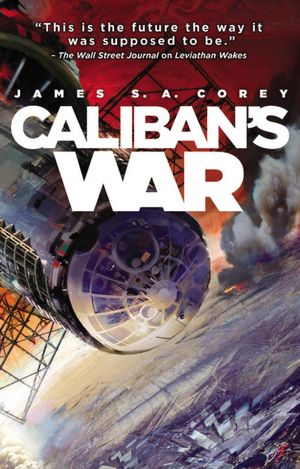 Caliban's War, James S.A. Corey's follow-up to the Hugo-nominated Leviathan Wakes takes readers back to the well-realized world of The Expanse. It's an all guns blazing thrill-ride that ups the stakes in the Expanse and keeps me wanting more.
Caliban's War, James S.A. Corey's follow-up to the Hugo-nominated Leviathan Wakes takes readers back to the well-realized world of The Expanse. It's an all guns blazing thrill-ride that ups the stakes in the Expanse and keeps me wanting more.
 This year, a major goal of mine is to try and cut down on my ever-growing 'to read' list, which has slowly crept into the triple digits over recent years. There are a handful of books that I've been meaning to get back to and revisit from earlier days, and at the top of the list was Timothy Zahn's 1999 science fiction / mystery novel, The Icarus Hunt. The book was one of the novels that I first read during my transition from Star Wars novels to mainstream genre novels, and it's been a book that's stuck in my mind since I first read it.
This year, a major goal of mine is to try and cut down on my ever-growing 'to read' list, which has slowly crept into the triple digits over recent years. There are a handful of books that I've been meaning to get back to and revisit from earlier days, and at the top of the list was Timothy Zahn's 1999 science fiction / mystery novel, The Icarus Hunt. The book was one of the novels that I first read during my transition from Star Wars novels to mainstream genre novels, and it's been a book that's stuck in my mind since I first read it.
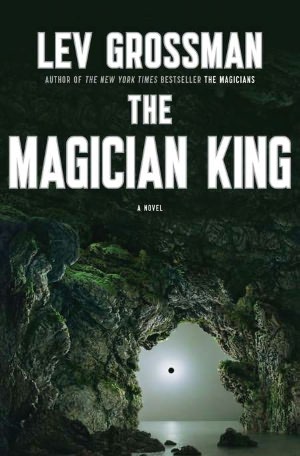

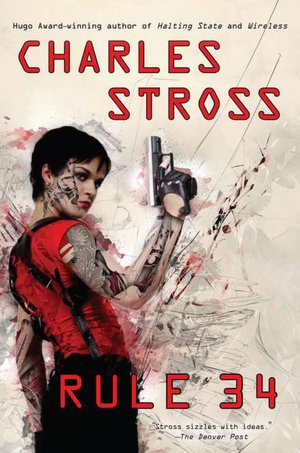
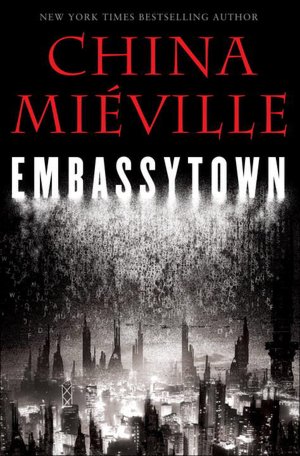
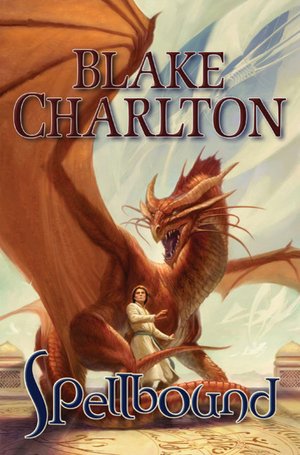

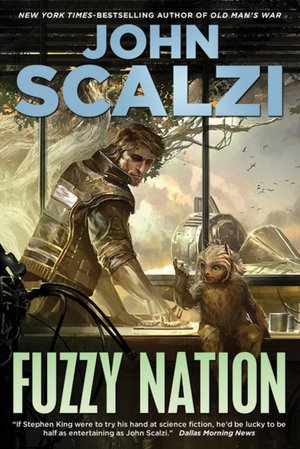
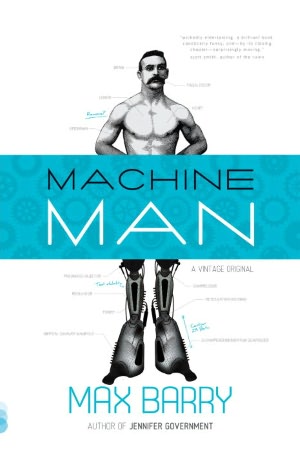


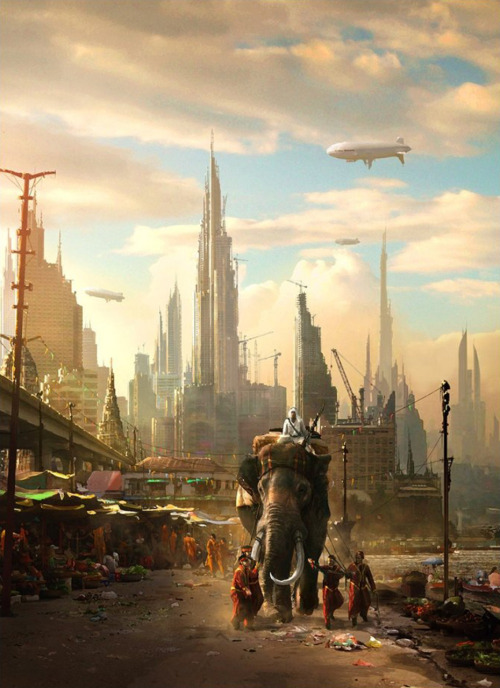
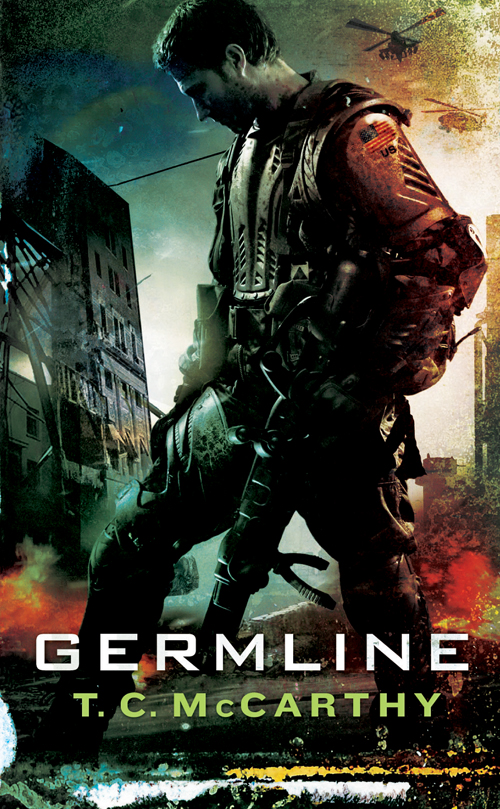 A common talking point that I’ve found when it comes to military science fiction is that it's not a game. War is more than a bunch of soldiers dressed up in powered armor, shooting at aliens or their enemies, and telling a good story set against a backdrop of an epic war that pits the good guys against the bad guys. More than its surrounding features, military science fiction is a way to look at the present day. Germline, by TC McCarthy is a book that really gets the complexity, danger and horrors of warfare. It's the shock to the system that the first World War was to the civilized world, where they saw, first-hand, that war is a cruel and unforgiving institution.
A common talking point that I’ve found when it comes to military science fiction is that it's not a game. War is more than a bunch of soldiers dressed up in powered armor, shooting at aliens or their enemies, and telling a good story set against a backdrop of an epic war that pits the good guys against the bad guys. More than its surrounding features, military science fiction is a way to look at the present day. Germline, by TC McCarthy is a book that really gets the complexity, danger and horrors of warfare. It's the shock to the system that the first World War was to the civilized world, where they saw, first-hand, that war is a cruel and unforgiving institution.